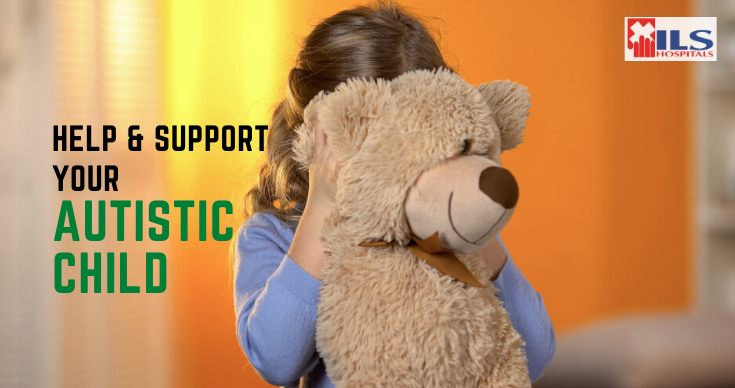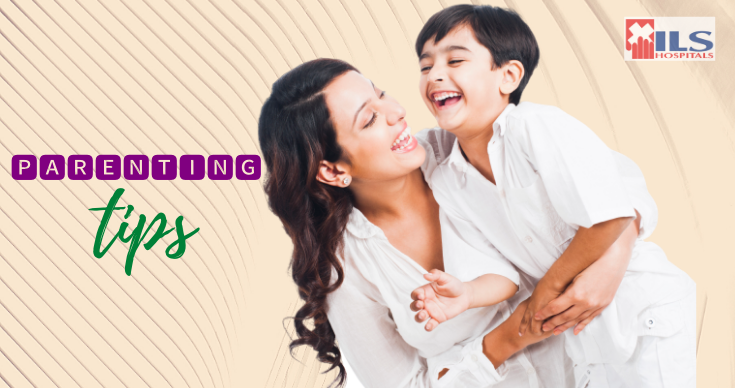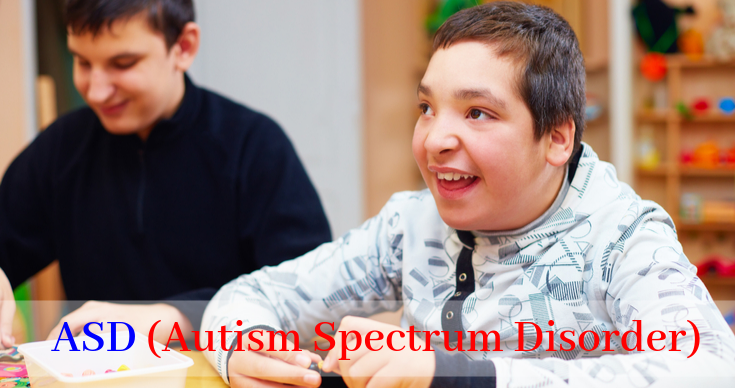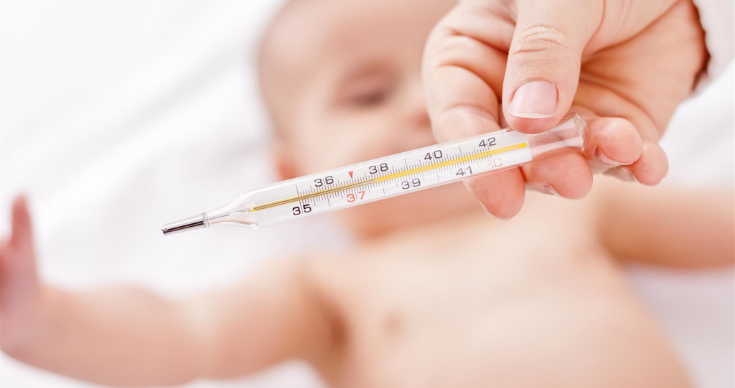How To Help And Support Your Autistic Child
Parenting a child is a tedious and demanding job but parenting a child with autism requires more skills and patience than ever.
ASD (Autism spectrum disorder) is not an easy concept to define. According to various psychiatrists, ASD is a developmental and neurological disorder that hampers the communication and social skills of the children. Autism is chronic and cannot be generally cured. But with multiple therapies, the child can live a normal life.
On World Autism Day, ILS Hospitals, one of the best hospitals in Kolkata and Agartala, will share ways through which you can help and support your autistic child to lead a normal life.
- Educate yourself about Autism: If you do not know what autism is all about, you will never be able to help your child at all. Read books on autism, research on the internet, meet with parents who have an autistic child and consult with a psychiatrist to get a reliable solution.
- Spend time with your child: Your autistic child might show signs of social withdrawal but he or she needs your time more than anything in this world. The needs of an autistic child are the same as other children, it’s just that they do not know how to express themselves.
- Involve your child in social activities: No matter how different and difficult your child is, he or she deserves to play and interact with others. Never hesitate to involve your autistic child in social gatherings and other social events. There’s nothing wrong with your child and he or she should be treated like any other normal child by everyone.
- Always be positive and patient: Sudden outbursts are a common phenomenon with autistic children. Patiently handle their tantrums and be positive about the situation as the child is not aware of the consequences.
- Respect your child’s boundaries: Do not force your child to do something they do not want to do. Respect them like you would respect any individual.
- Do not treat your child differently: If you have more than one child, then do not give the autistic child a different or special treatment than the others. Also, tell your other children to cooperate with their autistic sibling and never exclude him or her from their group.
- Give your love and support: Children seek affection and if they don’t receive them from their families they struggle with their self-esteem and self-expression. Love and support are going to be a soothing balm for your autistic child.
Hospitals in Agartala and Kolkata will always help you and your child in dealing with any medical issues. Do not hesitate to seek medical aid from our team.
How To Take Care Of Your Child’s Health
Parenting is no child’s play. It takes multiple efforts and patience from the parent’s end to raise healthy children. Today’s children are tomorrow’s leaders so taking care of them means ensuring a healthy future of our country.
As a parent, it’s normal to be constantly worried about your kid’s health. So, today ILS Hospitals, the best hospital in Kolkata would like to share some health tips that will ensure your child’s good health. Let’s take a look at them.
1. Serve nutritious food:
Children are picky eaters by nature which can cause problems to the parents and affect the child’s growth and development. Your children deserve adequate nutrition which they will get from fruits, vegetables, pulses, dairy, meat and nuts. Your children do not like eating nutritious foods because they find it boring. Serve healthy meals with a tasty twist. Start with a wholesome breakfast of poha, upma, oats idli, stuffed parantha, boiled eggs, whole-wheat toast and milk. Ensure to pack one fruit of any choice on your kid’s lunch box. For lunch and dinner, you can go for the basic rice, roti, dal, vegetable curries, meat, salad and so on.
2. Feed your child frequently:
Mothers usually stuff their children’s plate with foods in larger quantities. Let your child eat frequent small meals throughout the day. Instead of piling up your kid’s plate with more food allow your child to ask for a second serving. The notion is to ensure that your children eat 4-5 meals a day to get more energy and nutrition.
3. Give them a glass of milk daily:
Give your children a glass of milk daily either during the morning or evening. If your child finds it difficult to fall asleep at night then let them drink milk before going to bed.
4. Encourage good hygiene:
Teach your kids to wash their hands properly and frequently as and when required to prevent infections and diseases.
5. Pay attention to their mental well-being:
Children are sensitive. A loving environment will improve your child’s mental health. Give lots of love and support to your kids.
6. Take them to get routine health checkups:
Regular health checkups are important for your child’s good health. ILS Hospitals value your child’s health and well-being so we offer Child Health Checkup Packages in our hospital units. Our Paediatric Unit works around the clock to ensure your child’s health and mental well-being.
Visit ILS Hospitals, the best hospital in Kolkata and Agartala for optimal medical supervision.
The 3 Different Types Of ADHD You Should Know About
You have probably heard of the term ADHD a lot. ADHD means Attention Deficit Hyperactive Disorder. If your child or anyone in your family is hyperactive or cannot concentrate on a specific task for much time, it is possible that they might be suffering from ADHD. It is a chronic condition and most of the time, it is seen among children. It may also occur in adults, but that is very rare. A person suffering from ADHD mainly shows three types of behaviors. They are inattentiveness, impulsivity and hyperactivity. Today, on behalf of ILS Hospitals, one of the best hospitals in Kolkata, we are going to tell you the different types of ADHD.
Predominantly Inattentive ADHD
The name suggests itself that someone who has this type of ADHD has difficulty in paying attention. Some of the symptoms apart from inattentiveness are:
-
If someone does not pay much attention to details of any important task or situation.
-
Everyone makes careless mistakes, but if someone makes a lot of careless mistakes all the time, it is worrisome.
-
Due to inattentiveness, they will fail to pay attention and keep on doing the piece of task again and again.
-
Zoning out or not listening when someone is talking is a pretty common occurrence.
-
Being unable to follow or understand instructions.
-
Avoiding tasks that involve effort.
-
Being distracted or forgetful is also a sign.
-
The habit of losing things regularly that are needed to complete tasks.
If you have at least five symptoms out of eight, then you are most likely to have this kind of ADHD.
Predominantly Hyperactive-Impulsive ADHD
It is more common in kids. If your kids are very hyper-active and move a lot around constantly then it is possible that they have this condition.
-
Fidgeting and Squirming a lot.
-
Getting up often or not being able to stay at one seat for a long time.
-
Running or climbing anywhere at inappropriate times.
-
Having trouble playing quietly.
-
Talking too much.
-
Talking out of turn or blurting out the first thing that comes into mind.
-
Interrupting a lot in between other’s conversations.
Combined ADHD
As the name suggests combined ADHD is caused if you have symptoms combining both the other types. If you are both inattentive and hyperactive, it’s a more severe condition. Combined ADHD is the most common type of ADHD. People showing only one or two symptoms doesn’t likely have ADHD. Most people who have ADHD have these symptoms on a more severe level.
Usually, for kids, these symptoms can be detected easily before they turn 7 years old. But there is no particular test to diagnose the type of ADHD. In a lot of cases, the symptoms tend to change over time especially in adults. ILS Hospitals, being one of the best hospitals in Kolkata, provides effective treatment in the form of therapy and medication.
10 signs that indicates your child might have autism
In simple words, Autism (Autism Spectrum Disorder) is a neurological spectrum disorder in which the person lacks basic communication (both verbal and non-verbal) skills and social skills. There is no obvious reason behind autism but it is believed by many psychiatrists that ASD in children happens due to heredity, genetic disorders and deformity in the brain structure.
Children show signs of ASD after age 1 or 2 so it’s important for the parents to observe their child’s strange signs. The signs that might indicate that your child is autistic are as follows:
-
Prefers to always stay alone: It’s very odd for a child to prefer being alone than being in the company of other children. Autistic children live in their own world and does not know how to make friends and socially interact with people.
-
Inflexible nature: If your child follows a strict routine even at such a tender age, there is nothing to be proud of because it is a warning sign of ASD. Children with autism religiously follow their fixed schedule and have difficulty while dealing with even the most minor changes in their routine.
-
Repetitive behaviors: Your child may indulge in repetitive behaviors if he or she suffers from autism. The repetitive behaviors include- repeating words or phrases, lining up toys, incessant rocking, staring at lights, twirling, watching moving objects and so on.
-
Does not like physical affection: If your child does not like to be cuddled or even given a pat on the back, or be embraced when upset, it may indicate autism disorder.
-
Disinterested, unaware and unresponsive: A very unusual sign of autism is no eye contact which is seriously worrying for many parents. If your child always seems detached from the world and does not respond to you at all and appears to you deaf, chances are your child has autism.
-
Robot-like personality: Observe whether your child speaks in a flat robot-like tone with no emotions, has atypical posture and if walks on tiptoes.
-
Obsessive behavior: If your child has an obsession and special interest for certain topics and always craves for precise factual information, it can be a sign of ASD. OCD (Over- Compulsive disorder) and Autism go hand in hand so do watch for such signals and talk to a child psychiatrist.
-
Highly unemotional:Autistic children do not show even the basic human emotion in their speech, facial expressions and do not understand anyone’s feelings nor can relate to them. They may look aloof and cold to the entire world but the simple fact remains that they are poor at expressing themselves.
-
Self-harming behavior: Notice if your child practice self-injurious behavior like headbanging, self-scratching, hair pulling and face or head-slapping. Self-harm behavior is harmful and requires medical attention so consult a paediatric psychiatrist if your child physically harms him/herself.
-
Meltdowns: If your child has frequent meltdowns, it can make your life troublesome. There is a difference between normal tantrums and autistic meltdowns, so do not confuse the two and seek professional help, if needed.
Thus, if you notice the above-mentioned signs in your child, consider consulting a child psychiatrist without any delay. We, at ILS Hospitals, have trained and compassionate psychiatrists who will provide your child with the supportive care and counseling needed to better his or her life.
6 Most Common Health Issues Of Children By Expert Pediatricians
Falling sick is difficult and frustrating for every individual. However, when your kids fall sick, it is even more challenging. You might be able to ensure that your kid stays healthy by maintaining a healthy diet and lifestyle for your kids along with a regular visit to a general physician. However, in the case of several conditions, you need a proper consultation with an expert pediatrician. Today, we bring you some most common heath issues that are prevalent among young children, as explained by expert pediatricians.
1. Common Cold
The common cold is quite common among young children. But thankfully, most common colds can be effectively cured with adequate fluid intake, rest and home remedies, though sometimes it might require mild, over-the-counter medicine. But in case it is causing too many absenteeism or looks like something severe, it is wise to get it checked from a doctor soon.
2. Allergies
Having allergies is very common among young children. Let it be from any particular food or dust mite, smoke or pollen, it is important to get it evaluated. Though many children can successfully get rid of certain allergies as they grow up and their immune system develops, it is crucial to make them aware of their allergies and remedies, in case it is ever required.
3. Conjunctivitis
This infection affects the eyelid and also the eyeball sometimes. This can cause either due to a pathogen like a virus and bacteria or some allergies. This leads to red, puffy eyes that discharge liquid and often happens to be contagious in nature. It is crucial to take proper measure to ensure it does not affect other children either.
4. Warts
It is yet another common issue among young children. Warts are small, lumpy appearances on the skin that can spread to other areas as well. Though it is painless, it is crucial that the children do not prick or scratch them. It usually can be treated easily with mild medication, but in case they have a red and painful appearance or happens on the feet, the face or the genitals, it requires immediate medical attention.
5. Worms
Having worms is very common among young children. It projects annoying symptoms like itchy bottom. It can be effectively treated with anti-parasitic tablets, and it is crucial to have these medicines for everyone in the family simultaneously. It is also important to use soap and wash the bed linings and clothes thoroughly.
6. Gastroenteritis
Having diarrhea, vomiting, fever, and cramps are quite normal in children, along with loss of appetite and nausea. It is a pathogenic infection that can be treated easily by over the counter drugs, plenty of rest and fluid intake. But it spreads very quickly, so it is important to take measure to contain and eliminate it completely.
Even though growing up with mild illnesses is a part of childhood and there is no way to eliminate every condition, no matter how careful you are, it is important to be able to treat them on time. The expert pediatricians of the ILS Hospitals offer treatment for a wide range of illnesses among children.
Most Common Health Complications of Newborns
‘A newborn – a new beginning of life, a new hope, a new possibility’
If you are a new parent, you too can clearly relate to the same. However, having a child brings several concerns along with it. It is highly likely that you are constantly worried about the health and wellbeing of your little one. If you do, you are not alone and as per obstetricians, your worries are not pointless either. Newborns and infants are most susceptible to various illnesses from right after birth and until they turn at least a year old. You can find several infants being treated in hospitals on a daily basis. Here we present, a few most common health problems of newborns and infants-
Read more – Must-Have Immunization For Your Kids
1. Birth Injuries
It is the most common type of trauma seen in newborns and often occurs due to the use of forceps during childbirth. It is more common among breech babies and the ones with difficult labor. Most of the birth injuries resolve with time, however, in a few cases the degree of damage is more severe such as fracture and needs immediate care.
2. Diarrhea
Having loose motion is quite normal for young infants. It is often due to the reaction of antibiotics and infections. It is recommended to keep the baby hydrated and if the color and texture of the stool change rapidly, it is wise to seek an opinion from an expert.
3. Vomiting
Just like the loose motion, vomiting is quite common among newborns as well. It is particularly prevalent after feeding. Thereby, parents and other caregivers are encouraged to burp the child after feeding them. Persistent vomiting leads to severe dehydration and thus proper care is advised. Moreover, throwing greenish vomit is a red flag and requires immediate medical attention.
4. Fever
Infections are quite common among infants due to a low immune system. Thereby, having a fever too is common, as fever is the body’s autoimmune response to fight the infections. But parents are advised to seek help, if fever higher than 101 degrees persists for long, as it may lead to severe complications in the future.
5. Skin Problems
The baby has very soft and delicate skin during infancy and they suffer very frequent diaper rashes. It can lead to itching, irritation and other dermatology issues. It is therefore advised to use a good diaper cream and change the diapers more frequently.
We are observing newborn care week from 15thto 22nd November. And thereby encourage every new parent to take adequate measure towards ensuring that their child has a healthy childhood and life ahead. We, at ILS Hospitals, have expert neonatologists and pediatricians to deal with any kind of infant medical condition. Also, we are all equipped with the Neonatal intensive care unit.
Rely on the quality treatment and care of ILS Hospitals to treat any illness or injury of your newborn.
ILS Hospitals Has Fully Equipped NICU for Every Critically Ill New Born
A nation’s average performance and its position in the global platform depends on several factors. These factors range from education level, per capita income, gross domestic product, health standards and many more.
However, despite the preventive and corrective measure of the government towards the health and well-being, we all fall sick at some point or the other during the course of our lives. Healthcare industry plays an important role in the same. The ILS Hospitals is one of such healthcare partners who ensure that the citizen of India stay in perfect health so that they can contribute towards the overall productivity of the nation.

Let’s understand the importance of it through a case study of its high-end maternity hospital and NICU.
Mrs. Sangita Mitra, a school teacher of age 32, was expecting twins. She was getting her check-up and medication under an obstetrics close to her residence. He advised her diet and medication and also estimated the due date at 36th week.
Things went smoothly for the first and second trimester. However, during the mid of 29th week, she suddenly felt a sharp pain and contraction. Her family immediately consulted her doctor. He expected it might be a case of a premature delivery. But as he had no access to advanced maternal care and handling premature babies, he recommended them to ILS Hospitals.
When she consulted and scheduled a check up to maternity ward of ILS Hospitals, well-qualified obstetrics admitted her immediately as she was experiencing labor. One of the twins, the baby boy, despite being born prematurely was healthy, but the other baby had certain difficulties. Without wasting precious moments, the doctors admitted the baby to the NICU.

The baby girl was suffering from respiratory trouble along with instability of heart rate. The doctors were present round the clock to keep a track of her vitals and to provide medical care. After 6 weeks, the baby girl was fit enough to be discharged from the NICU. Due to the timely intervention of medical treatment and care, she was saved from long-term complications.
The NICU of ILS Hospitals is highly capable of handling crisis that could threaten the survivability and complications (both long term and short terms) that a premature baby or critically ill baby may face. Round the year, ILS Hospital’s NICU saves lives of numerous babies.








